![]()
Logion 4: (“Even a young boy's words are to be accepted if they are words of wisdom”)
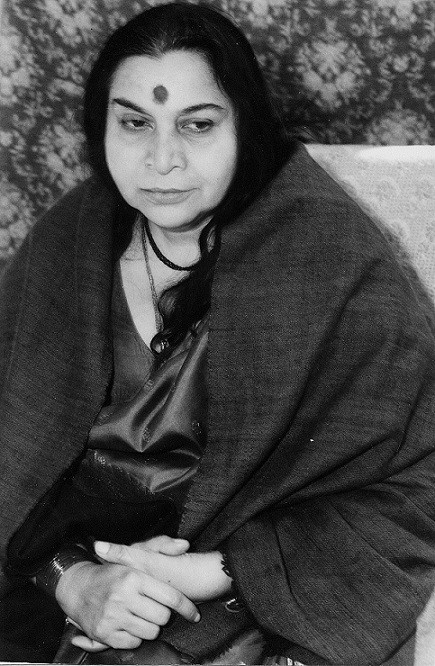
THE MOTHER: Messiah-Paraclete-Ruh
Kyiv, Ukraine—August 6, 1992
“For my mother [...], but my true [mother] gave me life.” The true mother may be the Holy Spirit, because the Hebrew word for Spirit (ruah) is feminine... An explicit proclamation of the Spirit as the mother of Jesus is to be found in the Gospel of Hebrew (frags. 2 and 3). This means that in the third part the true mother of Jesus, who gave him life, is the Holy Spirit.” (Pokorny 2011, 144)
“Now the times are very precarious, I must tell you. These are the times of Last Judgment. It has started. The Last Judgment has started. You won't believe. That's why thousands of people are seeking and being born. There are many little realised children I see who are born realised, who are born just for the Last Judgment.”
THE MOTHER: Messiah-Paraclete-Ruh
Public Program, All are Seekers
London, UK—November 6, 1980
“So these realised souls are all over and they are helping... They guide you to the proper lines, they bring their angels and they help you to come to the right path, to the right conclusions. And they never try to possess you, they never try to hypnotise you, or take you to the wrong side of life. So when you are realised also, you must know that you have to know completely what is the Reality.”
THE MOTHER: Messiah-Paraclete-Ruh-Devi
New Delhi, India—February 3, 1983
“Special personalities from Montreal, Canada will give evidence to confirm my Incarnation. You don't have to worry about that for now, but it will happen. You will hear about them later.”
THE MOTHER: Messiah-Paraclete-Ruh-Devi
Sydney Airport, Australia—April, 1994
In this way, our children are our teachers as much as our students, especially now. It is said that children choose their parents as they come into this world from a state of unity with the universal spirit, returning to this plane at exactly the place, at exactly the precise moment, and with exactly the people they want or should be with. They come to teach and to learn. Denying them the chance to do so limits the chances of their completing the lesson they came for, as well as limiting the chances of our learning ours.
The powers of the mind that until now seem accessible only to a few are now within the reach of every child. Every child born now has the ability to see deep into the future and the past. It is simply a matter of letting ourselves see. The influence of the age is already opening the door for the children to see what can be. They come at this very moment because they are supposed to. They come because they are supposed to help guide us into the New Millennium and guide us beyond it.
If we reject their visions, condemn them for their dreams, we are sealing them off from the universal spirit — and we are sealing ourselves off, as well.” (Mercado 1997, 175)
Since November 1993 the transcendental experiences of children's souls meeting the Divine Mother hundreds of times over the years have been recorded. They have identified Shri Mataji Nirmala Devi to be Her incarnation, sent to deliver the message and means to participate in the promised Resurrection and evolution into the eternal spirit. www.adishakti.org
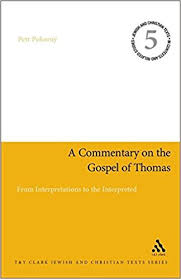
4 33,4b-10a
(1) Jesus says: “The person old in his days will not hesitate
to ask a child seven days old
about the place of life,
and he will live.
(2) For many who are first
will be last.
(3) And they will become a single one.”
The saying reverses the conventions of this world. The norm is that the child has to ask the adults, but here it is the other way round. The aim is to reach the original unity that recognizes no difference between teacher and student, old and young, great and small...
The place of life is the divine kingdom as the area in which God is immediately present. Such an area is spiritual and may extend into the human soul or mind (cf. log. 3 and 24:3)...
The saying has its parallel in Hippolytus's report on the Naassene Gnostics: “The one who seeks me shall find me in children of seven years and older ...”
A Commentary on the Gospel of Thomas
Petr Pokorny, T&T Clark; Reprint edition (December 22, 2011) p. 41-2
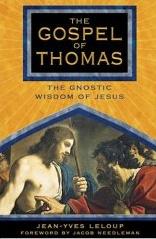
LOGION 4
Yeshua said:
An aged person will not hesitate to ask a seven-year-old infant
about the Place of Life, and that person will live.
Many of the first will make themselves last, and they will become One.
(CF. MATT 19:30, 20:16; MARK 10:31; LUKE 13:30; JOHN 17:20-23)
We are very old beings. Scientists say that we are billions of years old on a cellular level, and the old parts of our brain remember the beginnings of humankind. Here the Gospel of Thomas reminds those who are old that they must ask the child, for true knowledge consists not in accumulating more information, but in a new fresh way of looking— an innocence of the heart.
The child is close to the Place of Life, not yet confined by duality, not yet separate from its mother and from the world. Thus one may fruitfully enquire of the child as to the beginning.
Jean-Yves Leloup, The Gospel of Thomas
Inner Traditions (2005) p. 71
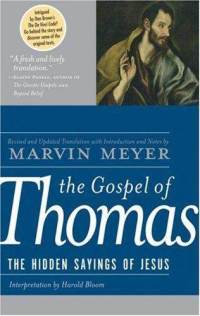
4. Jesus said, “The person old in days will not hesitate to ask a little child seven days old about the place of life, and that person will live. For many of the first will be last and will become a single one.”
4.“The person old in days ...”: Several parallels to this saying are to be found in ancient literature. In Hippolytus, Refutation of All Heresies 5.7.20, the author states that the Naassene gnostics use the following citation from the Gospel of Thomas: "One who seeks will find me in children from seven years, for there, hidden in the fourteenth age, I am revealed.” In Manichaean Psalm Book 192,2-3 occurs another parallel reading: "To the old people with gray hair the little children give instruction to those sixty years old.”And in Infancy Gospel of Thomas 7:3, Zacchaeus the teacher observes concerning his young pupil Jesus, "Friends, I think on my shame that I, being an old man, have been overcome by a child.” In general, compare Matthew 11:25-27 (Q); Luke 10:21-22 (Q).
The Gospel of Thomas: The Hidden Sayings of Jesus
Marvin Meyer, HarperOne; 2nd edition (October 9, 1992) pp. 21 and 80
(Papyrus Oxyrhynchus 654.21-27)
4. [Jesus says].“A [person old in] days will not hesitate to ask a [little child seven] days old about the place of [life, and] that person will [live]. For many of the [first] will be [last, and] the last first, and they [will become one].”
The Gospel of Thomas: The Hidden Sayings of Jesus
Marvin Meyer, HarperOne; 2nd edition (October 9, 1992) p. 79
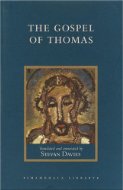
4a Jesus said: The old man will not hesitate to ask a seven-day-old baby about the place of life, and he will live.
4b For there are many who will become last. They will become a single one.
The specific symbolism of a "seven-day-old" infant suggest a time before circumcision, which was performed on the eight day (and according to Thomas, circumcision is a useless custom [saying 53])... The old man probably represents the ordinary person who has not sought or found the Kingdom. The infant as a model for wisdom can be found in other sayings in the Gospels as well, signifying that people must find a way to return to the beginning of their world and the time of the first creation. Saying 4 implies that the experience of discovery is no respecter of persons. The social categories of youth and age, and being socially first or last—these are irrelevant matters.
Stevan Davies and Andrew Harvey, Gospel of Thomas Annotated and Explained
Reviews, Skylights Path (2006) p. 6-7
“Even as the ocean is the substratum of all the waves, direct experience alone is the basis for all proofs—the direct experience of truth as it is.”

“Again, study of this scripture should continue till the truth is realized; one should not stop short of complete enlightenment. A little knowledge of the scripture results in confusion worse confounded. Non-recognition of the existence of supreme peace in the heart and assumption of the reality of imaginary factors are both born of imperfect knowledge and the consequent perverted logic. Even as the ocean is the substratum of all the waves, direct experience alone is the basis for all proofs—the direct experience of truth as it is. That substratum is the experiencing intelligence which itself becomes the experiencer, the act of experiencing, and the experience.”
These four—contentment, satsanga (company of wise men), the spirit of inquiry, and self-control—are the four surest means by which they who are drowning in the ocean of samsara (repetitive history) can be saved. Contentment is the supreme gain. Satsanga is the best companion to the destination. The spirit of inquiry itself is the greatest wisdom. And, self-control is supreme happiness. If you are unable to resort to these four, then practise one: by diligent practice of one of these, the others will also be found in you. The highest wisdom will seek you of its own accord. Until you tame the wild elephant of your mind with the help of these noble qualities you cannot progress towards the supreme, even if you become a god, demi-god or a tree. Therefore, O Rama, strive by all means to cultivate these noble qualities. He who is endowed with the qualities that I have enumerated thus far is qualified to listen to what I am about to reveal. You are indeed such a qualified person, O Rama.
One who sows the seed of the knowledge of this scripture soon obtains the fruit of the realization of truth. Though human in origin, an exposition of truth is to be accepted: otherwise, even what is regarded as divine revelation is to be rejected. Even a young boy's words are to be accepted if they are words of wisdom: otherwise, reject it like straw even if uttered by Brahma the creator.
He who listens to and reflects upon the exposition of this scripture enjoys unfathomable wisdom, firm conviction and unperturbable coolness of spirit. Soon he becomes a liberated sage whose glory is indescribable.
One who studies this scripture and comprehends its teaching is no longer deluded by world-appearance. When one sees that the yonder deadly snake is a life-like painting, one is no longer afraid of it. When the world appearance is seen as an appearance it does not produce either elation or sorrow. It is indeed a great pity that even when such a scripture exists, people seek sense-pleasures which lead to great sorrow.
O Rama, when a truth that has not been personally experienced is expounded, one does not grasp it except with the help of an illustration. Such illustrations have been used in this scripture with a definite purpose and a limited intention. They are not to be taken literally, nor is their significance to be stretched beyond the intention. When the scripture is thus studied, the world appears to be a dream-vision. These indeed are the purpose and the purport of the illustrations. Let no one of perverted intellect misinterpret the illustrations given in this scripture.
Again, study of this scripture should continue till the truth is realized; one should not stop short of complete enlightenment. A little knowledge of the scripture results in confusion worse confounded. Non-recognition of the existence of supreme peace in the heart and assumption of the reality of imaginary factors are both born of imperfect knowledge and the consequent perverted logic.
Even as the ocean is the substratum of all the waves, direct experience alone is the basis for all proofs—the direct experience of truth as it is. That substratum is the experiencing intelligence which itself becomes the experiencer, the act of experiencing, and the experience.
Even as movement is inherent in air, manifestation (as the subtle perceiving mind and as the gross objects it perceives) is inherent in this experiencing intelligence. And the perceiving mind, on account of ignorance, thinks 'I am such and such an object' and then becomes that. The object is experienced only in the subject, not elsewhere!”
Swami Venkatesananda, The Concise Yoga Vasistha
State University of New York Press (October 1984), pp. 35-36
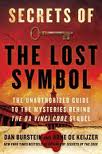
We Need God To Grasp The Wonder Of Our Existence
- by Karen Armstrong
“Despite our scientific and technological brilliance, our understanding of God is often remarkably undeveloped—even primitive. In the past, many of the most influential Jewish, Christian, and Muslim thinkers understood that what we call "God" is merely a symbol that points beyond itself to an indescribable transcendence, whose existence cannot be proved but is only intuited by means of spiritual exercises and a compassionate lifestyle that enables us to cultivate new capacities of mind and heart.
But by the end of the seventeenth century, instead of looking through the symbol to "The God beyond God," Christians were transforming it into hard fact. Sir Isaac Newton had claimed that his cosmic system proved beyond a doubt the existence of an intelligent, omniscient, and omnipotent creator who was obviously "very well skilled in Mechanicks and Geometry.” Enthralled by the prospect of such cast-iron certainty, churchmen started to develop a scientifically based theology that eventually made Newton's Mechanick and, later, William Paley's Intelligent Designer, essential to Western Christianity.
But the Great Mechanick was little more than an idol, the kind of human projection that theology, at its best, was supposed to avoid. God had been essential to Newtonian physics but it was not long before other scientists were able to dispense with the God hypothesis and, finally, Darwin showed that there could be no proof of God's existence. This would not have been a disaster had not Christians become so dependent upon their scientific religion that they had lost the older habits of thought and were left without other resources...
Throughout history, most cultures believed that there were two recognized ways of arriving at truth. The Greeks called them 'mythos' and 'Logos'. Both were essential and neither was superior to the other; they were not in conflict but were complementary, each with its own sphere of competence. Logos ("reason") was the pragmatic mode of thought that enabled us to function effectively in the world and had, therefore, to correspond accurately to external reality. But it could not assuage human grief or find ultimate meaning in life's struggle. For that people turned to mythos, stories that had no pretensions to historical accuracy but should rather be seen as an early form of psychology; if translated into ritual or ethical action, a good myth showed you how to cope with mortality, discover an inner source of strength, and endure pain and sorrow with serenity...
Religion was not supposed to provide explanations that lay within the competence of reason but was to help us live creatively with realities for which there are no easy solutions and to find an interior haven of peace; today, however, many have opted for unsustainable certainty instead. But can we respond religiously to evolutionary theory? Can we use it to recover a more authentic notion of God?
Darwin made it clear once again that—as Maimonides, Avicenna, Aquinas, and Eckhart had already pointed out—we cannot regard God simply as a divine personality who single-handedly created the world. This could direct our attention away from the idols of certainty and back to the "God beyond God.” The best theology is a spiritual exercise akin to poetry. Religion is not an exact science but a kind of art form that, like music or painting, introduces us to a mode of knowledge that is different from the purely rational and that cannot easily be put into words. At its best, it holds us in an attitude of wonder, which is, perhaps, not unlike the awe that Richard Dawkins experiences—and has helped me to appreciate—when he contemplates the marvels of natural selection...”
Secrets Of The Lost Symbol (The Unauthorized Guide to the Mysteries Behind 'The Da Vinci Code' Sequel)
Dan Burstein and Arne De Keijzer, Weidenfeld & Nicolson
Orion Publishing Group Ltd., Great Britain, 2010, pp. 180-182.
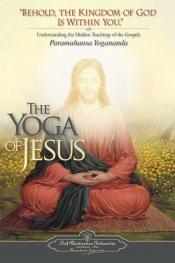
“Behold the Kingdom of God is within you.”
The Yoga of Jesus: Understanding the Hidden Teachings of the Gospels
“The exoteric aspect of religion is for the many, while the esoteric aspect is for the ardent few. It is in the esoteric aspect that "even a young boy's words are to be accepted if they are words of wisdom.” Meanwhile the scribes and pharisees can only lead in exoteric religion which Jesus described very well, can lead people astray from the esoteric (inner) truth.
"Jesus went very deep in teachings that appear on the surface to be simple - much deeper than most people understand.... In [his teachings] is the whole science of yoga, the transcendental way of divine union through meditation.”
Paramahansa Yogananda
(The Yoga of Jesus: "Behold, The Kingdom of God Is within You.”')
“All bona fide revealed religions of the world are based on intuitive knowledge. Each has an exoteric or outer particularity, and an esoteric or inner core. The exoteric aspect is the public image, and includes moral precepts and a body of doctrines, dogmas, dissertations, rules, and customs to guide the general populace of its followers. The esoteric aspect includes methods that focus on actual communion of the soul with God. The exoteric aspect is for the many; the esoteric is for the ardent few. It is the esoteric aspect of religion that leads to intuition, the firsthand knowledge of Reality.
The lofty 'Sanatana Dharma' of the Vedic philosophy of ancient India—summarized in the Upanishads and in the six classical systems of metaphysical knowledge, and peerlessly encapsulated in the Bhagavad Gita—is based on intuitional perception of the Transcendental Reality. Buddhism, with its various methods of controlling the mind and gaining depth in meditation, advocates intuitive knowledge to realize the transcendence of 'nirvana'. Sufism in Islam anchors on the intuitive mystical experience of the soul. within the Jewish religion are esoteric teachings based on inner experience of the Divine, evidenced abundantly in the legacy of the God-illumined Biblical prophets. Christ's teachings are fully expressive of that realization. The apostle John's Revelation is a remarkable disclosure of the soul's intuitional perception of deepest truths garbed in metaphor.”
Paramahansa Yogananda, The Yoga of Jesus
Self-Realization Fellowship, First edition, 2007, p.45.
THE APOCALYPSE OF THE SPIRIT-PARACLETE
The fulfillment of the promised divine eschatological instruction
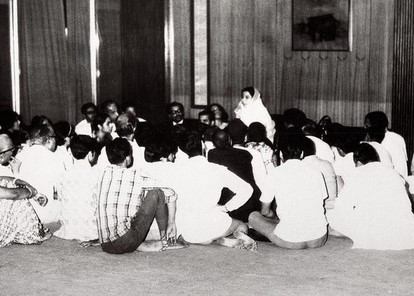
“The Paraclete will come (15:26; 16:7, 8, 13) as Jesus has come into the world (5:43; 16:28; 18:37)... The Paraclete will take the things of Christ (the things that are mine, ek tou emou) and declare them (16:14-15). Bishop Fison describes the humility of the Spirit, 'The true Holy Spirit of God does not advertise Herself: She effaces Herself and advertises Jesus.' ...
It is by the outgoing activity of the Spirit that the divine life communicates itself in and to the creation. The Spirit is God-in-relations. The Paraclete is the divine self-expression which will be and abide with you, and be in you (14:16-17). The Spirit's work is described in terms of utterance: teach you, didasko (14:26), remind you, hypomimnesko (14:26), testify, martyro (15:26), prove wrong, elencho (16:8), guide into truth, hodego (16:13), speak, laleo (16:13, twice), declare, anangello (16:13, 14, 15). The johannine terms describe verbal actions which intend a response in others who will receive (lambano), see (theoreo), or know (ginosko) the Spirit. Such speech-terms link the Spirit with the divine Word. The Spirit's initiatives imply God's personal engagement with humanity. The Spirit comes to be with others; the teaching Spirit implies a community of learners; forgetful persons need a prompter to remind them; one testifies expecting heed to be paid; one speaks and declares in order to be heard. The articulate Spirit is the correlative of the listening, Spirit-informed community.
The final Paraclete passage closes with a threefold repetition of the verb she will declare (anangello), 16:13-15. The Spirit will declare the things that are to come (v.13), and she will declare what is Christ's (vv. 14, 15). The things of Christ are a message that must be heralded...
The intention of the Spirit of truth is the restoration of an alienated, deceived humanity... The teaching role of the Paraclete tends to be remembered as a major emphasis of the Farewell Discourses, yet only 14:26 says She will teach you all things. (Teaching is, however, implied when 16:13-15 says that the Spirit will guide you into all truth, and will speak and declare.) Franz Mussner remarks that the word used in 14:26, didaskein, "means literally 'teach, instruct,' but in John it nearly always means to reveal.” (Stevick 2011, 292-7)
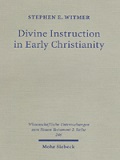
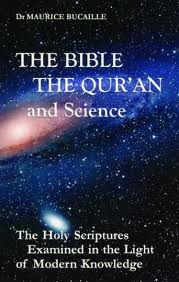
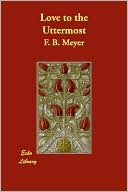
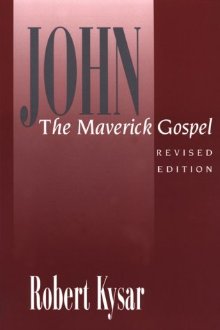
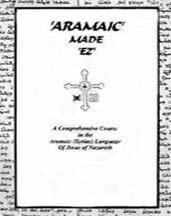
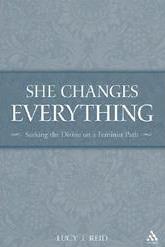
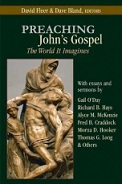
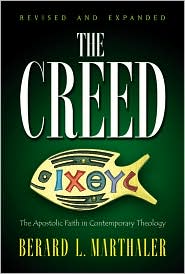
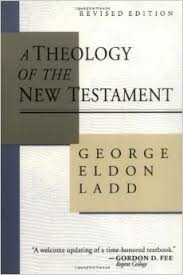
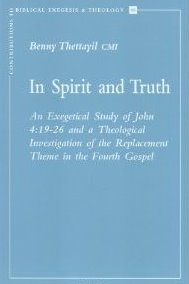

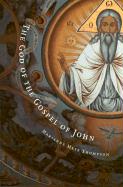
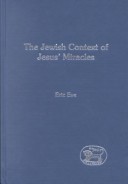
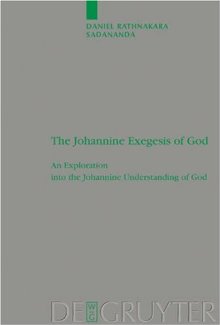
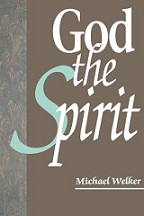
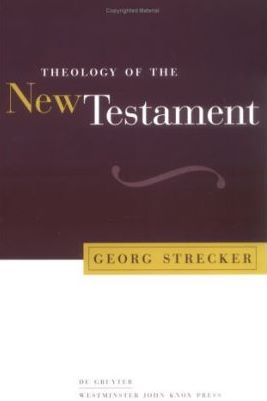
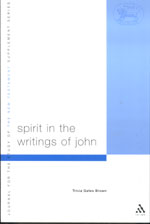
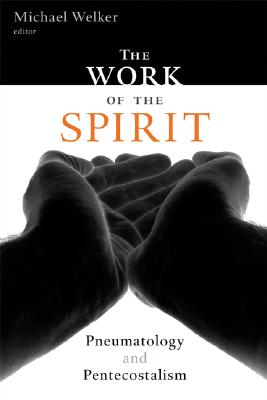
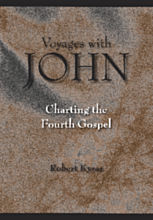
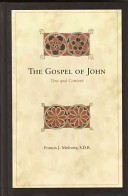
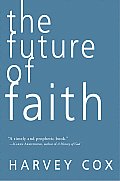
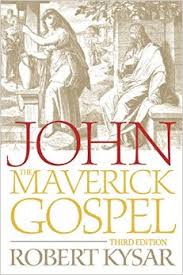
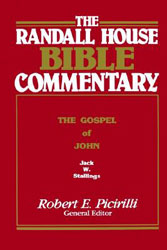

Stephen E. Witmer, Divine instruction in Early Christianity
“Jesus therefore predicts that God will later send a human being to Earth to take up the role defined by John .i.e. to be a prophet who hears God's words and repeats his message to man.”
M. Bucaille, The Bible, the Qur'n, and Science
“And when Jesus foreannounced another Comforter, He must have intended a Person as distinct and helpful as He had been.”
F. B. Meyer, Love to the Utmost
“The Paraclete has a twofold function: to communicate Christ to believers and, to put the world on trial.”
Robert Kysar, John The Meverick Gospel
“But She—the Spirit, the Paraclete...—will teach you everything.”
Danny Mahar, Aramaic Made EZ)
“Grammatical nonsense but evidence of the theological desire to defeminize the Divine.”
Lucy Reid, She Changes Everything
“The functions of the Paraclete spelled out in verses 13-15... are all acts of open and bold speaking in the highest degree.”
David Fleer, Preaching John's Gospel
“The reaction of the world to the Paraclete will be much the same as the world's reaction was to Jesus.”
Berard L. Marthaler, The Creed: The Apostolic Faith in Contemporary Theology
Bultmann calls the “coming of the Redeemer an 'eschatological event,' 'the turning-point of the ages.”
G. Ladd, A Theology of the New Testament
“The Paraclete equated with the Holy Spirit, is the only mediator of the word of the exalted Christ.”
Benny Thettayil, In Spirit and Truth
“The divine Paraclete, and no lessor agency, must show the world how wrong it was about him who was in the right.”
Daniel B. Stevick , Jesus and His Own: A Commentary on John 13-17
Stephen Smalley asserts that “The Spirit-Paraclete ... in John's Gospel is understood as personal, indeed, as a person.”
Marianne Thompson, The God of the Gospel of John
“The Messiah will come and the great age of salvation will dawn (for the pious).”
Eric Eve, The Jewish context of Jesus' Miracles
“The remembrance is to relive and re-enact the Christ event, to bring about new eschatological decision in time and space.”
Daniel Rathnakara Sadananda, The Johannine Exegesis of God
“The Spirit acts in such an international situation as the revealer of 'judgment' on the powers that rule the world.”
Michael Welker, God the Spirit
The Paraclete's “Appearance means that sin, righteousness, and judgment will be revealed.”
Georg Strecker, Theology of the New Testament
“While the Spirit-Paraclete is the true broker, the brokers they rely on are impostors.”
T. G. Brown, Spirit in the writings of John
“The pneumatological activity ... of the Paraclete ... may most helpfully be considered in terms of the salvific working of the hidden Spirit.”
Michael Welker, The work of the Spirit
“The pneuma is the peculiar power by which the word becomes the words of eternal life.”
Robert Kysar, Voyages with John
“The gift of peace, therefore, is intimately associated with the gift of the Spirit-Paraclete.”
Francis J. Moloney, The Gospel of John
“This utopian hope, even when modestly expressed, links Jesus and the prophets to a much wider history of human longing.”
Harvey Cox, The Future of Faith
“Because of the presence of the Paraclete in the life of the believer, the blessings of the end-times—the eschaton—are already present.”
Robert Kysar, John
“They are going, by the Holy Spirit's power, to be part of the greatest miracle of all, bringing men to salvation.”
R. Picirilli, The Randall House Bible Commentary
“The Kingdom of God stands as a comprehensive term for all that the messianic salvation included... is something to be sought here and now (Mt. 6:33) and to be received as children receive a gift (Mk. 10:15 = Lk. 18:16-17).”
G. Ladd, A Theology of the New Testament
“But today is the day I declare that I am the one who has to save the humanity. I declare I am the one who is Adishakti, who is the Mother of all the Mothers, who is the Primordial Mother, the Shakti, the desire of God, who has incarnated on this Earth to give its meaning to itself; to this creation, to human beings and I am sure through My Love and patience and My powers I am going to achieve it.
I was the one who was born again and again. But now in my complete form and complete powers I have come on this Earth not only for salvation of human beings, not only for their emancipation, but for granting them the Kingdom of Heaven, the joy, the bliss that your Father wants to bestow upon you.”
THE MOTHER: Messiah-Paraclete-Ruh
December 2, 1979—London, UK
“I am the one about which Christ has talked... I am the Holy Spirit who has incarnated on this Earth for your realization.”
THE MOTHER: Messiah-Paraclete-Ruh
New York, USA—September 30, 1981
“Tell all the nations and tell all the people all over the Great Message that the Time of Resurrection is here. Now, at this time, and that you are capable of doing it.”
THE MOTHER: Messiah-Paraclete-Ruh
Cowley Manor Seminar, UK—July 31, 1982
“This is the transformation that has worked, of which Christ has talked, Mohammed Sahib has talked, everybody has talked about this particular time when people will get transformed.”
THE MOTHER: Messiah-Paraclete-Ruh-Devi
Chistmas Puja, Ganapatipule, India—25 December 1997
“The Resurrection of Christ has to now be collective Resurrection. This is what is Mahayoga. Has to be the collective Resurrection.”
THE MOTHER: Messiah-Paraclete-Ruh-Devi
Easter Puja, London, UK—11 April 1982
“Today, Sahaja Yaga has reached the state of Mahayoga, which is en-masse evolution manifested through it. It is this day’s Yuga Dharma. It is the way the Last Judgement is taking place. Announce it to all the seekers of truth, to all the nations of the world, so that nobody misses the blessings of the divine to achieve their meaning, their absolute, their Spirit.”
THE MOTHER: Messiah-Paraclete-Ruh-Devi
MAHA AVATAR, ISSUE 1, JUL-SEP 1980 (Date and place unknown)
“The main thing that one has to understand is that the time has come for you to get all that is promised in the scriptures, not only in the Bible but all all the scriptures of the world. The time has come today that you have to become a Christian, a Brahmin, a Pir, through your Kundalini awakening only. There is no other way. And that your Last Judgment is also now.”
THE MOTHER: Messiah-Paraclete-Ruh-Devi
“You see, the Holy Ghost is the Mother. When they say about the Holy Ghost, She is the Mother... Now, the principle of Mother is in every, every scripture — has to be there. Now, the Mother's character is that She is the one who is the Womb, She is the one who is the Mother Earth, and She is the one who nourishes you. She nourishes us. You know that. And this Feminine thing in every human being resides as this Kundalini.”
THE MOTHER: Messiah-Paraclete-Ruh-Devi
Radio Interview, Santa Cruz, USA—Oct 1, 1983
“It is the Mother who can awaken the Kundalini, and that the Kundalini is your own Mother. She is the Holy Ghost within you, the Adi Shakti, and She Herself achieves your transformation. By any talk, by any rationality, by anything, it cannot be done.”
THE MOTHER: Messiah-Paraclete-Ruh-Devi
“She is your pure Mother. She is the Mother who is individually with you. Forget your concepts, and forget your identifications. Please try to understand She is your Mother, waiting for ages to give you your real birth. She is the Holy Ghost within you. She has to give you your realization, and She's just waiting and waiting to do it.”
THE MOTHER: Messiah-Paraclete-Ruh-Devi
Public Program Mar 22 1981—Sydney, Australia
“The Kundalini is your own mother; your individual mother. And She has tape-recorded all your past and your aspirations. Everything! And She rises because She wants to give you your second birth. But She is your individual mother. You don't share Her with anybody else. Yours is a different, somebody else's is different because the tape-recording is different. We say She is the reflection of the Adi Shakti who is called as Holy Ghost in the Bible.”
THE MOTHER: Messiah-Paraclete-Ruh-Devi
Press Conference July 08 1999—London, UK
Disclaimer: Our material may be copied, printed and distributed by referring to this site. This site also contains copyrighted material the use of which has not always been specifically authorized by the copyright owner. We are making such material available to our readers under the education and research provisions of "fair use" in an effort to advance freedom of inquiry for a better understanding of religious, spiritual and inter-faith issues. The material on this site is distributed without profit. If you wish to use copyrighted material for purposes other than “fair use” you must request permission from the copyright owner.